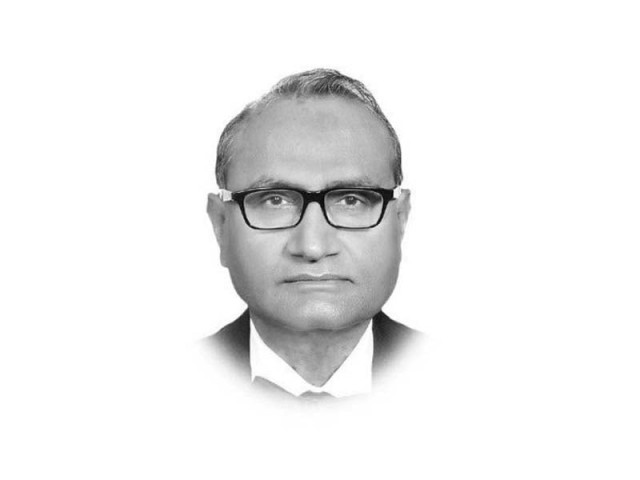Of human security
In the raging debate on national security and economy, the question of whose security is it anyway has been ignored

pervez.tahir@tribune.com.pk
Budgetary allocation is the major input used to achieve the desired outcome in these areas. An attempt is made here to match the allocations to the seven types of security to make an assessment of performance. These are then compared with the expenditure on the conventional notion of security in Pakistan, commonly lumped under national security. It must be kept in mind that allocating adequate resources is only the first step; these do not in any way give a measure of the desired outcomes.
We find that expenditure on human security has increased significantly since the 18th Amendment and the 7th NFC award. From 38.7 per cent of the total expenditure before these game-changing events, it rose to 44.7 per cent in 2016-17.
As most of the components of the social and environmental fabrics and a few in the economic fabric lie in the provincial domain, the provinces are the major contributors to the increased expenditure on human security. In contrast, the expenditure on national security, a federal responsibility, has roughly been flat around 13 per cent of the consolidated expenditure. In the budget 2017-18, it is projected at 13.6 per cent. As a result, the ratio of human to national security has improved from 2.97 times to 3.7 times. Looking towards the future, further devolution from the provincial to the local level could increase the proportion of expenditure on human security even further. These proportions are in the right direction, with the provinces spending over 60 per cent of their budgets on human security. However, these are proportions of a smaller pie. Both the federal and provincial governments are lagging behind in the tax reform to enlarge the pie.
It used to be said that diplomacy is continuation of war by other means. The new discourse on national security, the so-called fourth generation warfare, also continues war by economic means. In contrast, human security paradigm rests on prevention of war by all means. Is Pakistan being subjected to economic warfare? Are debt, fiscal deficit, trade deficit and exchange rate being used as continuation of war by other means? All these indicators are worse than they should be, but none is in the unmanageable range. The deterioration in debt liability and trade balance is related to increasing investment and import of machinery. The exchange rate, it must be admitted, is problematic because of the unnecessary love of the finance minister for a stronger rupee. The current phase of political uncertainty has its own contribution to make. The fiscal deficit of 5.8 per cent of GDP has exceeded the target mainly because the provinces have refused the federal diktat to show surpluses in their budgets. At any rate, all these are domestic failings and curable without recourse to the IMF.
Published in The Express Tribune, November 3rd, 2017.
Like Opinion & Editorial on Facebook, follow @ETOpEd on Twitter to receive all updates on all our daily pieces.















COMMENTS
Comments are moderated and generally will be posted if they are on-topic and not abusive.
For more information, please see our Comments FAQ